山东省临清实高11-12学年高一英语必修1课件:Module 3 My First Ride on a Train Culture Corner(外研版必修1)
文档属性
| 名称 | 山东省临清实高11-12学年高一英语必修1课件:Module 3 My First Ride on a Train Culture Corner(外研版必修1) |
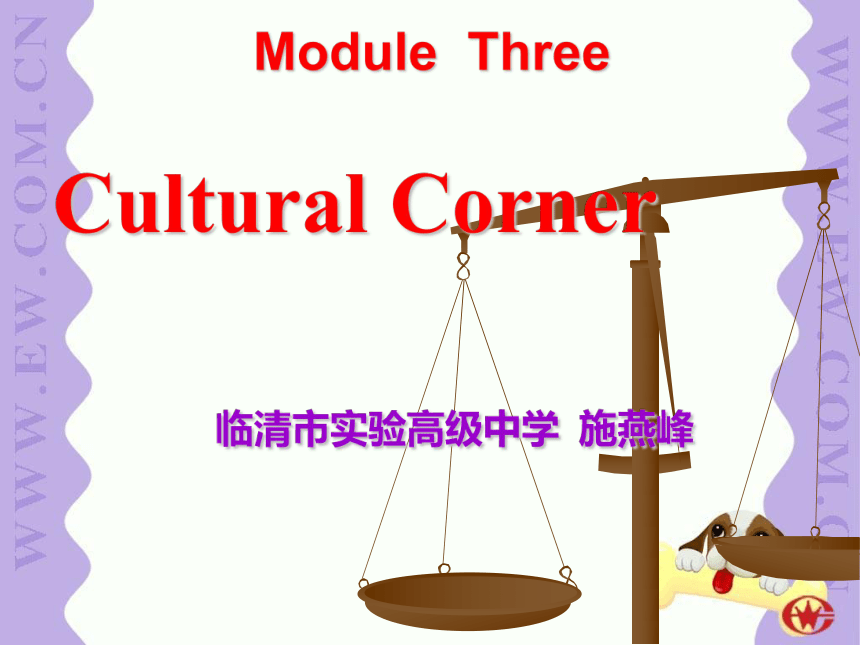
|
|
| 格式 | rar | ||
| 文件大小 | 1.4MB | ||
| 资源类型 | 教案 | ||
| 版本资源 | 外研版 | ||
| 科目 | 英语 | ||
| 更新时间 | 2012-01-03 00:00:00 | ||
图片预览

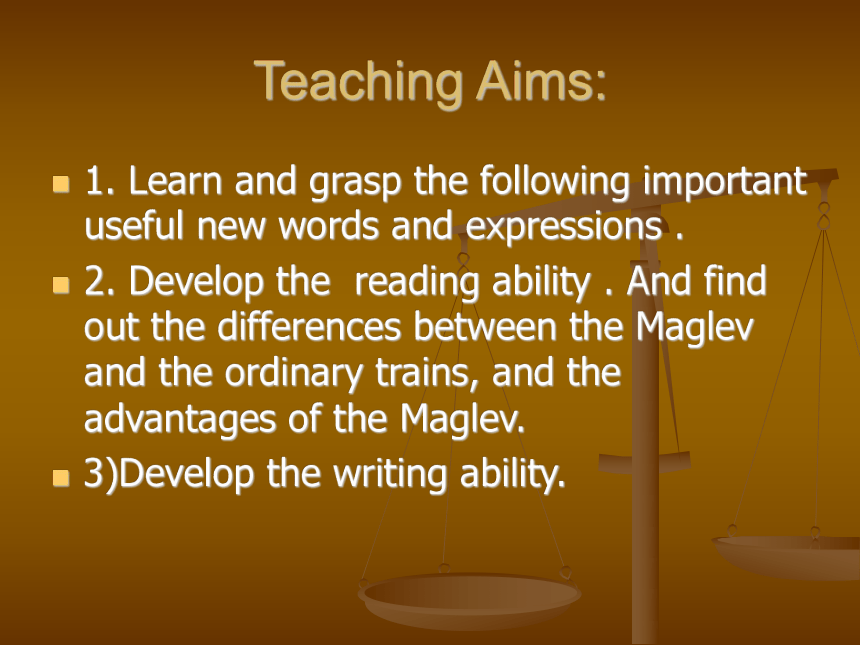
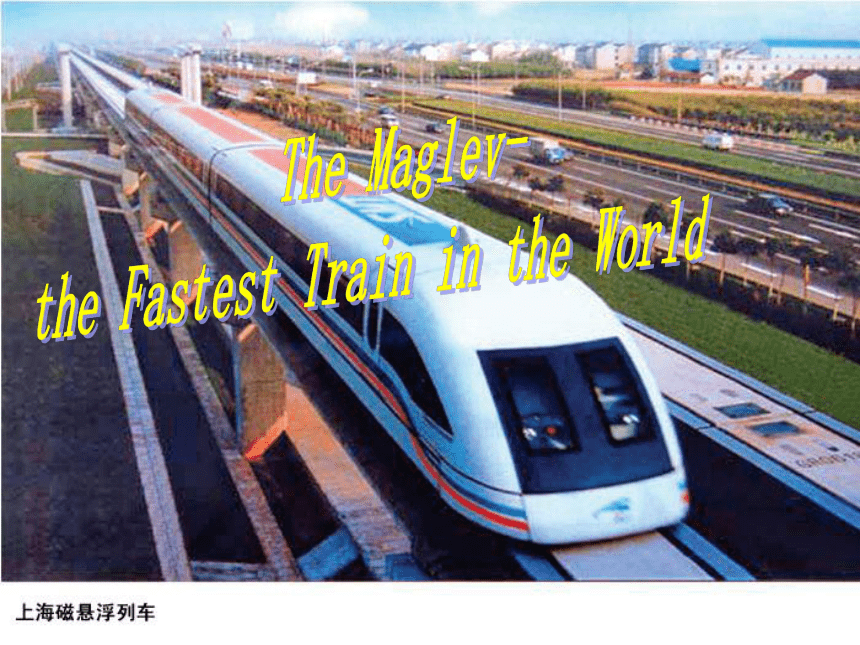
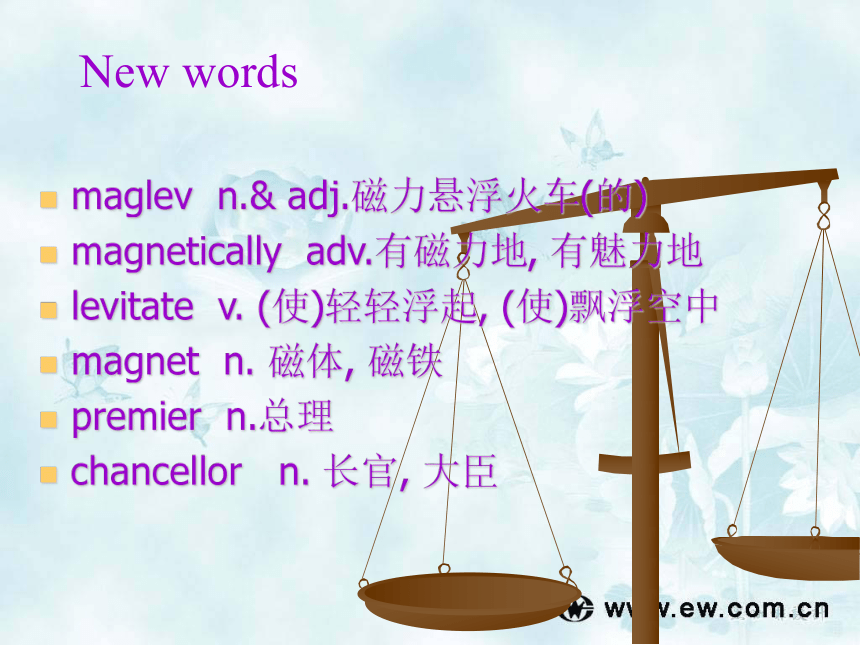

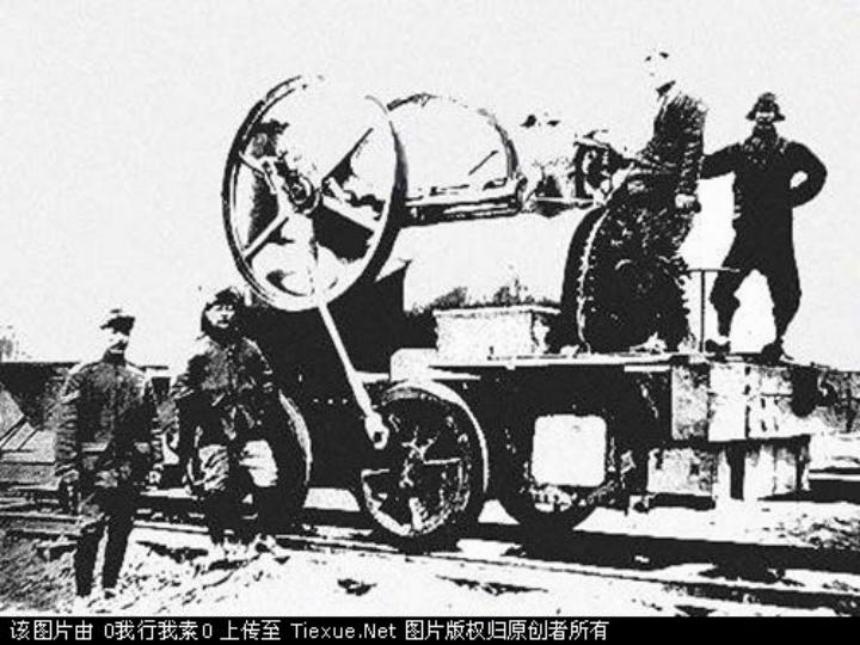
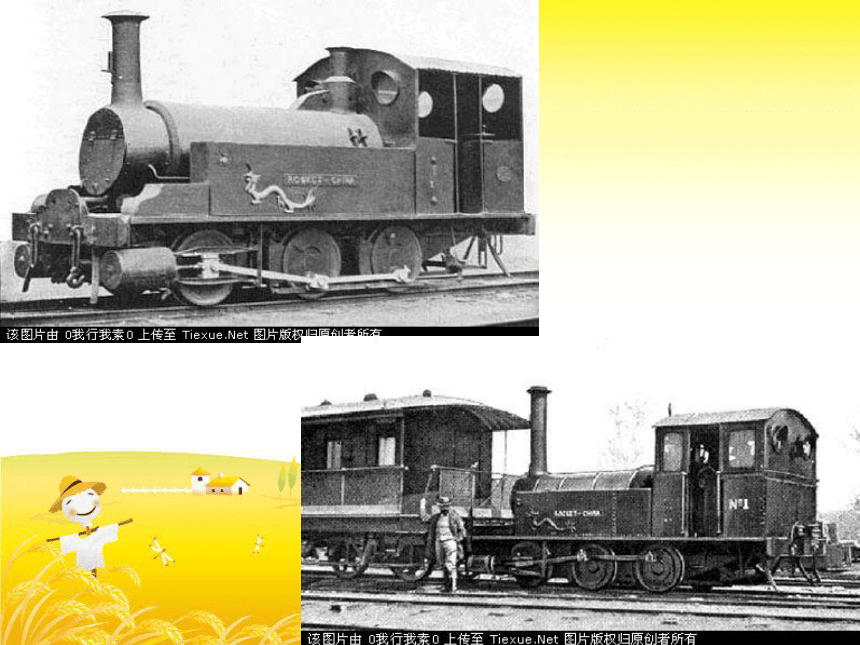
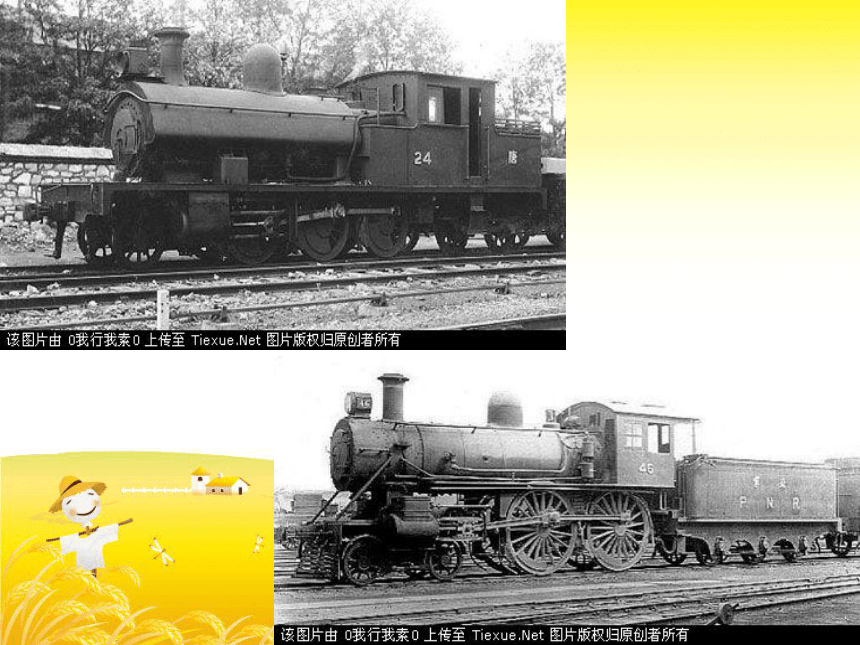
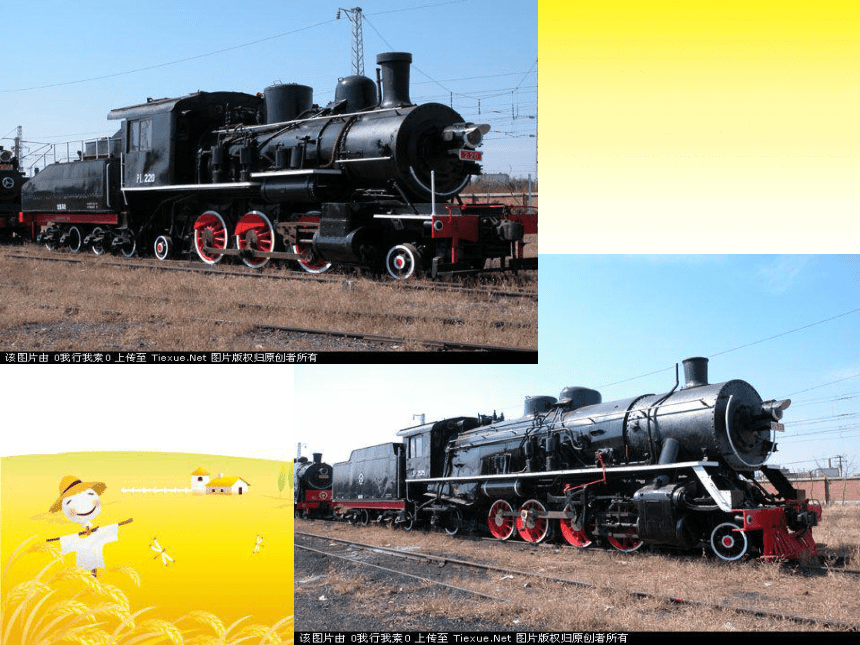
文档简介
(共23张PPT)
Module Three
Cultural Corner
临清市实验高级中学 施燕峰
Teaching Aims:
1. Learn and grasp the following important useful new words and expressions .
2. Develop the reading ability . And find out the differences between the Maglev and the ordinary trains, and the advantages of the Maglev.
3)Develop the writing ability.
maglev n.& adj.磁力悬浮火车(的)
magnetically adv.有磁力地, 有魅力地
levitate v. (使)轻轻浮起, (使)飘浮空中
magnet n. 磁体, 磁铁
premier n.总理
chancellor n. 长官, 大臣
New words
Trains have changed a lot since it was born. Let’s take look at it’s history.
Read the passage and answer the questions.
1 What are the main differences between a
magnetically levitated train and an ordinary
train
It is faster, less noisy and uses less energy.
2 What are the advantages of travelling on a
Maglev train
You travel very quickly and quietly. The
train uses less energy.
1. Travelling at a speed of over 400 kilometers per hour, the train can complete the 30-kilometer journey in eight minutes.
列车以每小时400公里的速度行驶,八分钟就能完成这段30 公里的旅程。
Travelling at a speed of over 400 kilometers per hour是现在分词短语在句子中作状语。
2. The Transrapid Maglev is the world’s first high-speed train using magnetic levitated technology.
The Transrapid Maglev是世界上第一列用磁悬浮技术的高速列车。
using magnetic levitated technology是现在分词作定语。
3. at a speed of …以…速度 (后加具体数字)
汽车以每小时60公里的速度行驶。
The bus goes at a speed of 60 kilometers an
hour .
拓展:
at low speed
at high speed
at full/top speed
with all/great speed
低速
高速
全速
很快地
4. track n. 轨迹, 车辙, 跟踪, 航迹, 足迹, 路, 磁轨, 途径
vt. 循路而行, 追踪, 通过, 用纤拉
vi. 追踪, 留下足迹, 走
We followed his tracks through the snow.
我们跟着雪地上他留下的脚印下。
The train left the ran off the track.
火车出轨了。
Group work
Describe the first time you traveled a long distance to your classmate.
Example: I first traveled a long distance by train
when I was six years old. I went with my parents
from Shanghai to Beijing.
Pay attention to:
Who , when, where, what, why& how
Think of a tourist spot where you made a trip. Make notes on:
how to get there
what you did there
things that happened to you when you were there
Try to find photographs, postcards, maps and souvenirs to support your report
Homework
Module Three
Cultural Corner
临清市实验高级中学 施燕峰
Teaching Aims:
1. Learn and grasp the following important useful new words and expressions .
2. Develop the reading ability . And find out the differences between the Maglev and the ordinary trains, and the advantages of the Maglev.
3)Develop the writing ability.
maglev n.& adj.磁力悬浮火车(的)
magnetically adv.有磁力地, 有魅力地
levitate v. (使)轻轻浮起, (使)飘浮空中
magnet n. 磁体, 磁铁
premier n.总理
chancellor n. 长官, 大臣
New words
Trains have changed a lot since it was born. Let’s take look at it’s history.
Read the passage and answer the questions.
1 What are the main differences between a
magnetically levitated train and an ordinary
train
It is faster, less noisy and uses less energy.
2 What are the advantages of travelling on a
Maglev train
You travel very quickly and quietly. The
train uses less energy.
1. Travelling at a speed of over 400 kilometers per hour, the train can complete the 30-kilometer journey in eight minutes.
列车以每小时400公里的速度行驶,八分钟就能完成这段30 公里的旅程。
Travelling at a speed of over 400 kilometers per hour是现在分词短语在句子中作状语。
2. The Transrapid Maglev is the world’s first high-speed train using magnetic levitated technology.
The Transrapid Maglev是世界上第一列用磁悬浮技术的高速列车。
using magnetic levitated technology是现在分词作定语。
3. at a speed of …以…速度 (后加具体数字)
汽车以每小时60公里的速度行驶。
The bus goes at a speed of 60 kilometers an
hour .
拓展:
at low speed
at high speed
at full/top speed
with all/great speed
低速
高速
全速
很快地
4. track n. 轨迹, 车辙, 跟踪, 航迹, 足迹, 路, 磁轨, 途径
vt. 循路而行, 追踪, 通过, 用纤拉
vi. 追踪, 留下足迹, 走
We followed his tracks through the snow.
我们跟着雪地上他留下的脚印下。
The train left the ran off the track.
火车出轨了。
Group work
Describe the first time you traveled a long distance to your classmate.
Example: I first traveled a long distance by train
when I was six years old. I went with my parents
from Shanghai to Beijing.
Pay attention to:
Who , when, where, what, why& how
Think of a tourist spot where you made a trip. Make notes on:
how to get there
what you did there
things that happened to you when you were there
Try to find photographs, postcards, maps and souvenirs to support your report
Homework
